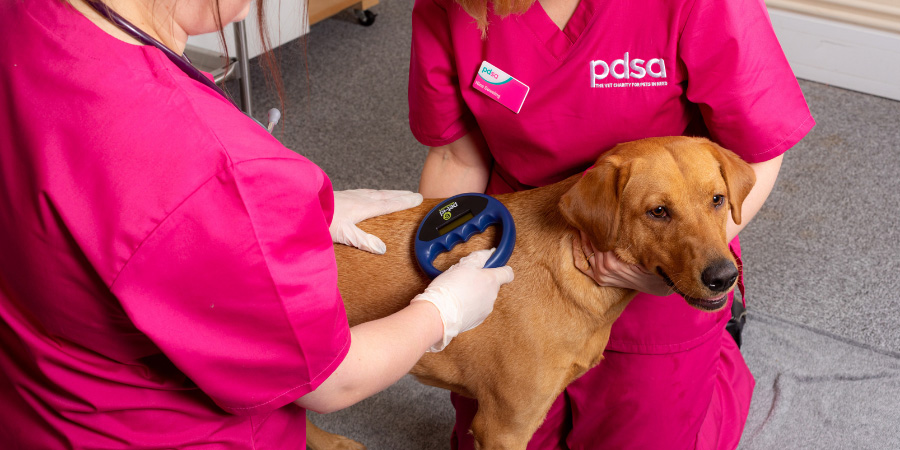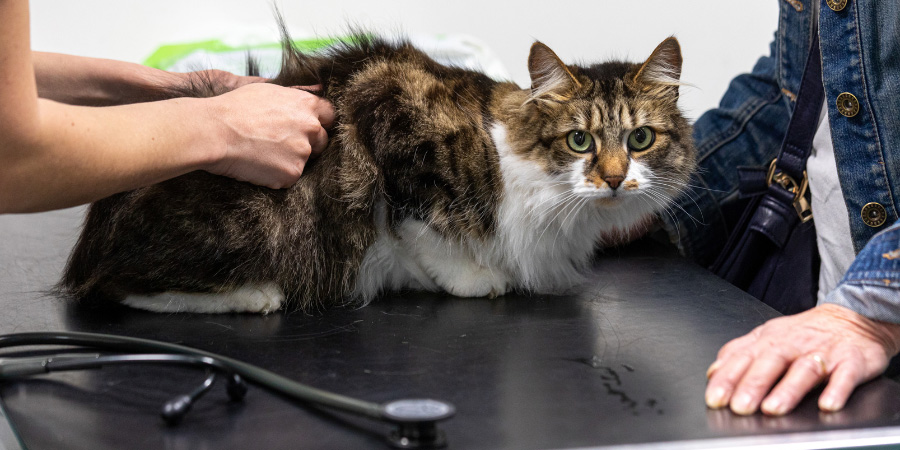Everyone loves a good holiday. After all, taking a much-needed break is the perfect way to relax and recharge. Holidays can also be a great way to spend time with your pet, but it’s important to remember they may not enjoy a trip away in the same way you will.
When travelling with pets it's important to keep them happy and stress-free. Many pets can find changes in routine, environment and travelling stressful, so you'll need to decide whether it’s best for them to join you, or stay with a responsible person, such as a friend or family member or a professional pet sitting service or boarding kennels.
While many dogs are perfectly happy to join us on our vacation, some may be happier at home. Think about things like their age and health before booking as well as other factors such as the likely weather and any activities you may be planning.
In general, we wouldn’t recommend holidaying with cats, rabbits and smaller pets unless essential as they can get very stressed without the familiarity of home.
To help ensure your trip runs as smoothly as possible, we’ve put together our top tips for travelling with pets. We cover everything, from making sure that you have suitable insurance for pets to checking that your pet is comfortable throughout the journey. So, you’ll be able to have a safe and stress-free holiday with your beloved companion.
Check that your destination accepts pets
Before you even book, you should check that your destination welcomes pets. It’s also worth researching beforehand to make sure that the environment is safe for your pet, and that the area is free from hazards.
There is often a security deposit attached when picking a pet-friendly destination. This is to protect the homeowner in case of any damage or destruction. We recommend bringing your own blankets to put on the sofa and beds to protect them. Some places may even recommend that your pet sticks to specific rooms. You should also make sure that your furry friend is up to date with their flea treatments, so they don’t bring any nasties into the accommodation.
If your dog is crate trained, consider bringing their crate with you to keep them safe if you go out without them. If your dog isn’t crate trained, we recommend planning your holiday so that they are not alone to avoid potentially damaging your accommodation.
Make sure your pet is insured
We recommend all pets, whether travelling or staying at home, have pet insurance as it will provide support should your pet fall ill or be injured and need vet treatment. Some pet insurance providers, like PDSA Pet Insurance, can cover overseas veterinary treatment and provide holiday travel cover.
We recommend ensuring that your pet insurance covers these if you are travelling with your pet. It’ll help reassure you – especially if the worst happens and there are any unexpected trips to the vet whilst you’re on holiday.
Make sure your pet’s details are up to date

Even though it’s a legal requirement in the UK to have your cat and dog microchipped, many forget to update their microchip details. Whether you’re going on a short break or moving far away, you should contact your microchip company and update your details. Check before you travel to make sure your details are still correct.
This way, if your pet accidentally gets out whilst you are on holiday, they can be identified by their microchip. It’s also a legal requirement to ensure that you have a tag on your dog’s collar with up-to-date details. If someone finds your dog, they’ll immediately be able to use the contact details on the tag to reunite you. This may also save you from a hefty fine.
Make the journey as comfortable as possible
Everyone loves a good holiday – but not everyone loves the journey. If you must travel with pets, ensure to make their journey as comfortable as possible.
You should make sure that your pet has a comfy bed for the journey and regular stops for a drink, exercise and a comfort break! We recommend speaking with your vet before you travel if they are prone to car sickness, as they may be able to prescribe your pet medication to help. If your pet has other health concerns, your vet will also be able to advise you whether it would be safe for your pet to travel.
When you’ve confirmed that your pet is healthy and fit to travel, you should find the most suitable means of transport for your furry friend. If you need a pet carrier, make sure that it:
- Is big enough to sit, stand and turn.
- Is made from solid material.
- Is well ventilated.
- Has a front door, top door and a lid that clips on.
- Has a padded base and is lined with something absorbent.
- Is in good working order.
If you are travelling by car, give your pooch a drink and let them stretch their legs before you set off. Plan plenty of stops for your dog to go to the toilet and have a drink.
Cars can quickly reach sweltering temperatures on warmer days, so consider leaving early in the morning or evening to avoid the hottest part of the day. Try to make the car as cool as possible - sun shades and cooling mats are a good idea.
Remember to check the temperature in the back of the car, although most cars have great air conditioning for the front seats, the back seat or boot can heat up very quickly and become dangerously warm for your pet. If your pet is travelling on a seat, ensure you have a seatbelt or carrier to help keep them safe and stop your pet from from moving around and distracting you.
Research vets at your holiday destination

Whether you are travelling abroad or somewhere in the UK, make sure that you research the vets at your holiday destination. It’s stressful enough rushing to the vet with a sick pet. Preparing in advance in case the worst should happen will make life a little easier for you and your pet.
Know exactly where the nearest vet is and save their contact details. It might even be worth contacting the vet in question and making sure they would be happy to see you in an emergency, as some vets may be unable to take on new clients. Find out more information about their out-of-hours service as it might not be based on the same site.
Travelling abroad: things to consider
If you do decide to travel abroad with your pet, there are a few extra considerations to consider.
Most of our pets have never been in an aeroplane, so travelling by air can be a scary experience for them. While it may be necessary if you’re moving abroad, we don’t recommend taking your pet on a holiday that requires a flight. If you want to holiday abroad with your pet, look for countries you can reach by ferry or train – and check any requirements the carriers might have for your pet.
If you do need to fly with your pet, it’s worth knowing that if you’re using a UK airport, all pets except guide dogs and recognised assistance dogs must travel as cargo, not in the cabin with their owner.
Some airline companies may also have restrictions on particular breeds such as flat-faced or banned breeds – so you should check before you book to make sure that your furry companion is allowed to fly.
If you’re travelling abroad, you’ll need to check the travel regulations for the country you are visiting, as well as those for returning to the UK. You can find up-to-date information on the Government website. Depending on your destination, your pet may require official travel documents, specific vaccinations, a microchip and parasite treatments, which usually need to be given within a set period of travel.
Speak to your vet well in advance of your trip to make sure you have everything in place at the right time and be aware of the additional costs! Your vet will also be able to advise you if your pet needs additional protection against specific parasites and diseases that may be more of a risk in other countries than the UK.
Summary
Before travelling anywhere – make sure that your pet is healthy enough to travel. You may want to bring your furry friend with you, but for some, the best thing for them might be to stay at home.
Regardless of whether you are travelling with your pets, or they stay at home, we truly believe it’s worthwhile having insurance for pets as it protects you from unexpected vet bills, which can run into thousands of pounds if your pet is seriously injured or ill. Why not check out our pet insurance policies today?
